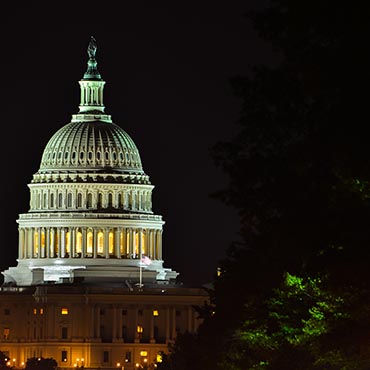Congress averts shutdown with 2-day funding bill

Longer-term funding still requires Senate approval, president's signature.

Feds who stayed up late watching C-SPAN probably got more drama than they were expecting from the votes to avert a partial government shutdown.
On the evening of Dec. 11, the House of Representatives passed an $1.1 trillion appropriations bill dubbed the "cromnibus" because it keeps the Department of Homeland Security operational on the basis of a continuing resolution through Feb. 27, 2015, while funding the rest of government with an omnibus appropriations package through the end of the current fiscal year. The bill passed by a vote of 219-206.
A large majority of Democrats joined a small minority of Republicans to oppose the package. Democrats went against the bill because they objected to two policy riders -- one that rolled back a provision in the Dodd-Frank financial regulation bill about derivatives trading by federally insured institutions, and another that increases the maximum allowable individual donation to political parties. Republicans who voted against the measure wanted a stronger rebuttal of President Barack Obama's executive order on immigration.
The House then passed a continuing resolution to fund the government for two more days at current levels, knowing that the Senate would not have time to move the full bill before midnight. With just over an hour left on the clock before government funding expired, the Senate too passed the continuing resolution, also under unanimous consent.
Before voting on the longer-term funding bill, however, the Senate must first vote on the National Defense Authorization Act -- and dispose of some potentially time-consuming objections being raised by Sen. Tom Coburn (R-Okla.) over a national lands use package included in that bill. Coburn has yet to show signs of relenting, and if the Senate cannot pass the Defense bill under unanimous consent, the appropriations bill might have to wait until Dec. 13.
"It could be a lot of different times," Reid said in remarks on the Senate floor late on Dec. 11. "But we're going to work as hard as we can to expedite things around here. But if we're going to do this tomorrow, we need cooperation from everyone," he said.



